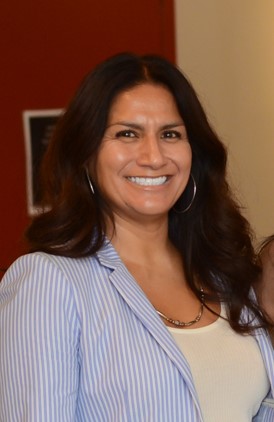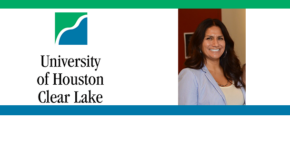 On University of Houston Clear-Lake Week: Your culture can play a big part in how you learn and teach.
On University of Houston Clear-Lake Week: Your culture can play a big part in how you learn and teach.
Desdamona Rios, associate professor of psychology, explores this in higher education.
Dr. Desdamona Rios is an Associate Professor of Social Psychology and Director of the Latinx and Latin American Studies program at the University of Houston-Clear Lake (UHCL). She holds a joint doctorate in Psychology and Women’s Studies, and teaches courses on Personality, Social Psychology, and Psychology of Gender, Race, and Sexuality. Dr. Rios’s teaching practices and research reflect her commitment to diversifying spaces of higher learning. She has published on intersectionality in the academy including pedagogical practices, and faculty and student experiences. She is the recipient of three national teaching awards from the American Psychological Association’s Society for the Teaching of Psychology, the Society for the Psychological Study of Social Issues, and the Association for Women in Psychology. She is also the recipient of UHCL’s Hayes diversity award for her work with underrepresented groups in academia. She currently serves as consulting editor for Psychology of Women Quarterly, Secretary for the Texas Association for Chicanos in Higher Education’s Gulf Coast Region, and on the Executive Council for the Society for the Psychological Study of Social Issues. Her current research focuses on community-based projects including kinship adoption in the foster care system, and examining collaborative practices among non-profit organizations serving Houston’s East End communities, as well as culturally appropriate methods for studying social support in families of Latinx LGBTQ people.

Multidisciplinarity, Interpretive Power, and Interdependence in Higher Education
The pandemic has demanded we acknowledge racial disparities in wealth, education, and access to healthcare. It has also illuminated how interdependent we are as a society and has afforded us the opportunity to reevaluate our priorities as educators. Multidisciplinary studies programs provide students the knowledge and understanding of the strengths of all Americans as well as how culture, migration, borderlands, history, artistic production, and colonialism have shaped our American identities.
As we reevaluate what it means to be a multicultural nation, we must be intentional about honoring invisible aspects of culture, such as values, that largely inform our interpretations of American life and more specifically the meaning of education. For some students, education is a vehicle for individual success, while others understand education as a way to improve one’s community.
Historically, ethnic studies programs have been confined to their silos, and the most visible aspects of culture on most campuses involve cuisine or holidays. It is necessary that we cultivate our interpretive power in educational settings, a concept that originated in the educational literature and was initially conceptualized as teachers’ ability to understand diverse cultural ways of knowing. Visionaries in academia have recommended the cultivation of interpretive power among educators to recognize how one’s own culture informs their approaches to research, mentoring, and teaching. It is undeniable that we are overdue for realizing a holistic educational system that honors the contributions by all groups of Americans and integrates various cultural strengths throughout the education system. Relegating the histories of ethnic minority Americans to electives denies the necessary information needed to become a nation informed by the strengths of its people. If we don’t know each other’s histories, how are we supposed to make sense of ourselves in relation to others or own role in American society?

Comments
3 responses to “Desdamona Rios, University of Houston Clear Lake – Multidisciplinarity, Interpretive Power, and Interdependence in Higher Education”